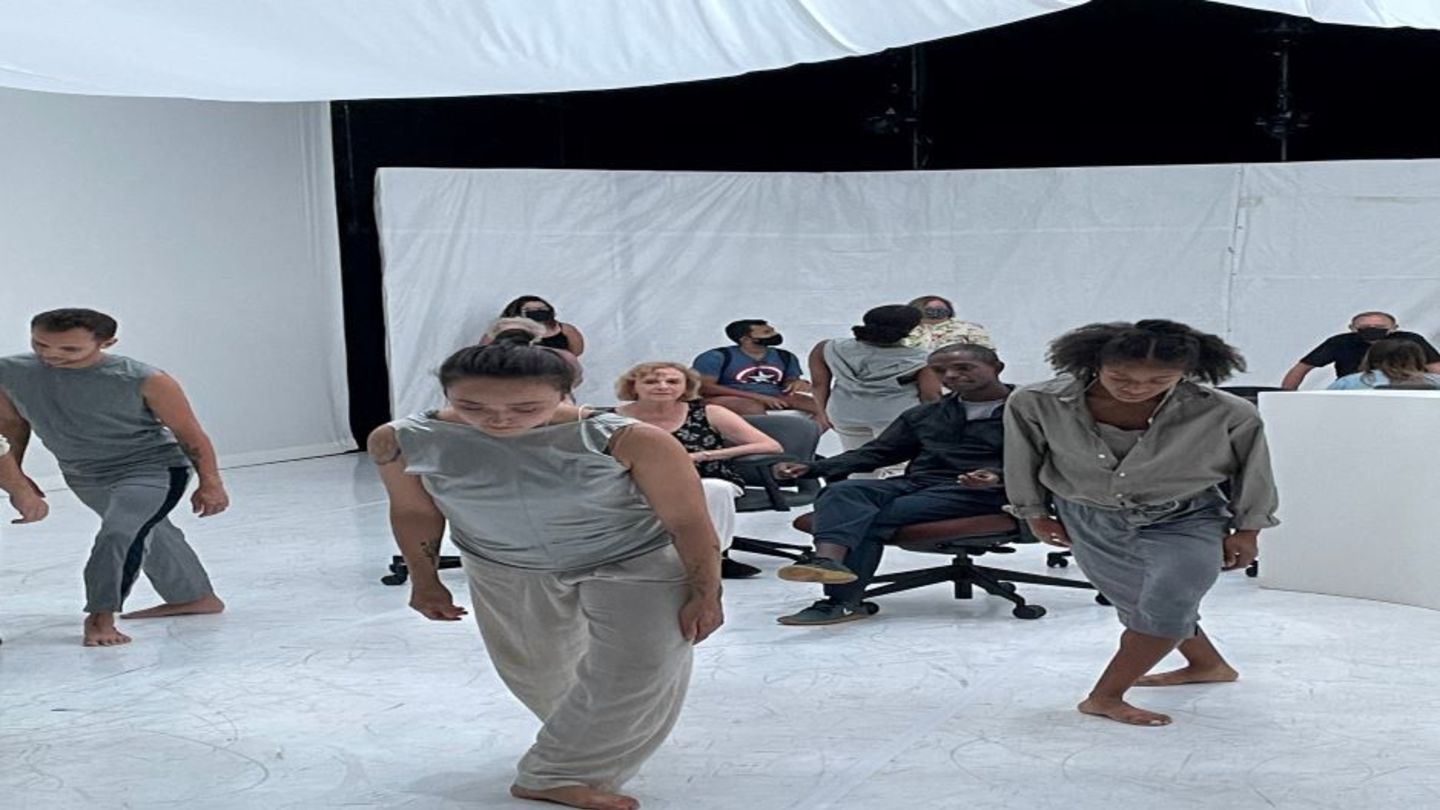
The Institute on Disabilities, Temple University, is pleased to announce that it has been awarded a $345,348 project grant, including $57,560 in general operating support, from The Pew Center for Arts & Heritage. The support will be used to present the world premiere of Rhythm Bath, a suite of immersive, durational dance performance-installations by choreographer Susan Marshall and set designer Mimi Lien. Produced by the Institute on Disabilities, the project builds on Marshall's 30+ years of renowned dance work and is informed by her experience as a parent to her art-loving adult neurodiverse son and member of a community of neurodiverse individuals, families, and advocates. Rhythm Bath will premiere at the 2023 Philadelphia Fringe Festival at Christ Church Neighborhood House.
"The Institute is thrilled to partner with acclaimed artists Susan Marshall and Mimi Lien to present this important work," notes Lisa Sonneborn, Director, Media Arts and Culture, Institute on Disabilities. "We are deeply grateful to The Pew Center for Arts & Heritage for the opportunity to bring accessible, boundary-pushing performance to audiences in Philadelphia and beyond."
Rhythm Bath blends performance, adventure, and reflection, inviting art-loving audiences with and without disabilities to gather and enjoy art, in an environment where there's no "right" way to be a "good" audience. The project will explore questions of audience invitation and exclusion, with the aim of creating a level playing field where a certain way of being in—or controlling—one's body is not preconceived.
"This work is an extension of the Institute's social justice mission and Susan Marshall's advocacy as an artist and a parent," said Sally Gould-Taylor, PhD, Executive Director, Institute on Disabilities.
James Earl Davis, PhD, interim dean of the College of Education and Human Development at Temple University, where the Institute on Disabilities is located, is excited about the upcoming program. "Through this unique vehicle of contemporary performance, Rhythm Bath reflects the shared interest of the Institute and the College in agency and interdependency."
Professional dancers will perform within and through three set installations and amongst the audience who may move through the spaces. Current ideas include an environment constructed top to bottom in white fabric, with a soft billowing ceiling; a dark space in which the audience may interact with and animate sculptural elements; and rolling chairs to sit in and move, to increase audiences' comfort without dictating a specific viewing area or perspective. A large dance ensemble will move through shifting rhythms and patterns; solos and duets also appear and reappear in different areas. The dancing need not be watched sequentially; the performance-installations will repeat over several hours, during which audiences may come and go.
"With Rhythm Bath, I'm inviting audiences to gather and enjoy performance in an environment where there's no 'right' way to be and you can come as you are to share an experience of art with others," notes Susan Marshall. "Our creative team is hoping to create a level playing field in which a certain way of being in—or controlling—one's body is not privileged."
Rhythm Bath is being developed in conversation and collaboration with those who identify as neurodiverse. The artists and producers use the term "neurodiverse" to primarily describe people with disabilities that affect motor control and vocalization, including autism, apraxia, Parkinson's disease, Tourette's syndrome and a range of developmental disabilities. With these individuals in mind, Rhythm Bath examines long-established and outdated norms of audience engagement within contemporary performance, and aims to imagine new, more inclusive ways to experience art. It is designed to be welcoming and accessible to—not just adapted for—the neurodiverse and neurotypical communities. Presenting Partners for Rhythm Bath are Christ Church Neighborhood House and FringeArts.
Major support for Rhythm Bath has been provided by The Pew Center for Arts & Heritage, with additional support from the National Endowment for the Arts, the John D. and Catherine T. MacArthur Foundation, and PEAK Performances at Montclair State University.
